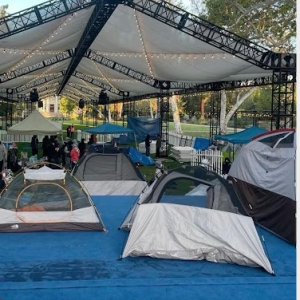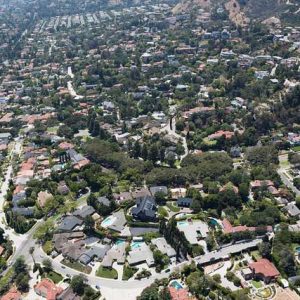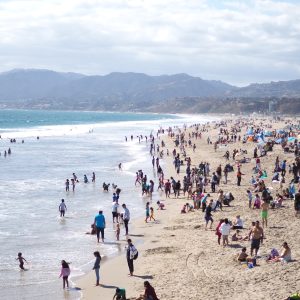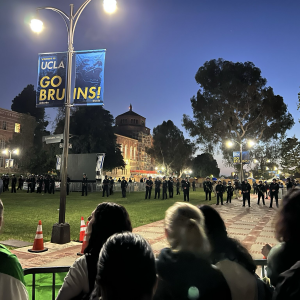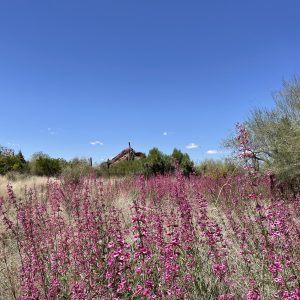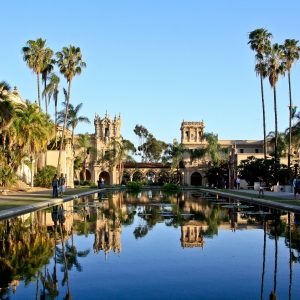 View Winners →
View Winners → Arcadia Council Tightens Regulations on Water Usage
Arcadia Council Tightens Regulations on Water Usage
BY JOE TAGLIERI
The Arcadia City Council on Tuesday voted unanimously to restrict outdoor irrigation citywide.
The newly passed ordinance curtailing water usage restricts lawn and landscape irrigation to three days a week — Tuesday, Thursday and Saturday. The law also prohibits watering between 9 a.m. and 6 p.m. in addition to “during and 48 hours after measurable rainfall.”
Council Member Sho Tay questioned the vagueness of the term “measurable rainfall,” and city staff members indicated the state has not provided a specific definition.
The legislation additionally seeks to encourage residents to put shut-off nozzles on water hoses.
“There shall be no hose washing of a motor vehicle, except where the hose is fitted with a shut-off nozzle or similar device that causes the hose to cease dispensing water immediately when not in use,” the ordinance states.
Council members also added a requirement that hotels and motels offer guests the option of not having their towels and bed linens laundered daily.
These new restrictions join existing rules aimed at reducing water consumption that include prohibitions on hose-washing sidewalks, walkways, driveways and parking areas, filling and cleaning decorative fountains without recirculating systems and food service businesses automatically serving water without a customer’s request.
Code enforcement officers are tasked with enforcing the city’s new water rules, according to Public Works Services Director Tom Tait. If infractions persist after two correction notices, the city will levy fines of $100 for the first infraction, $200 for a second offense and $500 for subsequent violations.
California’s persistent drought prompted a state mandate for more drastic water conservation efforts, which in turn served as the impetus for Arcadia’s heightened water restrictions.
“Following another winter of low rainfall, March 17 of this year the [state] Water Resources Board reissued the emergency water conservation regulations and added additional regulations to that,” Tait told the council, adding that designated days for irrigation were among those additional water-saving measures.
The council also on Tuesday agreed to spend just over $2 million for 3,000 acre-feet of imported replacement water from the Main San Gabriel Basin Watermaster.
“If we wait until the end of the fiscal year, we’ll end up paying $100 more per acre-foot,” Tait said. “We do overpump the main basin every year … so we have to buy this replacement water.”
Council Member Tom Beck noted that this purchase “is saving the city of Arcadia $300,000 by staying alert, staying ahead of the curve and buying the water cheaper.”
Tait reported the city’s current water demand is 16,500 acre-feet per year and that Arcadians reduced consumption by a little more than 9 percent compared with a year ago.
An executive order from Gov. Jerry Brown calls for measures aimed at achieving a 25 percent reduction in water use statewide through February 2016.
“The more water that each homeowner or property owner conserves lowers rates in the long-run because we don’t have to buy that expensive replacement water,” said City Manager Dominic Lazzaretto.
Representatives from local golf courses noted their concern about the impacts the three-day watering requirement may have on their businesses.
Large-scale water users such as the two golf courses in Arcadia and the Los Angeles County Arboretum & Botanic Garden or may apply for an exemption from the three-day rule, Lazzaretto said. They must submit a plan to Tait that shows their facility is achieving a 25 percent reduction from 2013 usage levels and prove the plan has been implemented in order to gain the Public Works director’s approval for the exemption.
“The key question in all of this, is 25 percent of what?” said Craig Kessler from the Southern California Golf Association. “2013 happens to be the most onerous year you could pick.”
Tait disagreed, noting that “2013 was a very dry year, so it’s a pretty favorable year as opposed to ’14.”
Instead of the three-day rule, Kessler advocated for what he called a “budget allocation formula.” In an interview he explained the formula, which stems from state legislation, assigns a water-use budget to a golf course based upon a series of scientific factors based on climate zone in which the course is located.
“It makes us conserve, but it’s a rational way of us going out there and taking a look based on evapotranspiration, crop-coefficients, the types of turfs that we’re growing out there,” said Scott Bourgeois from the city-owned Arcadia Golf Course. “It’s a responsible way of cutting back water so it doesn’t overall damage the product.”
Arcadia resident April Verlato told council members she was in favor of a similar exemption option for residents who have “smart” irrigation systems that efficiently conserve water and significantly reduce water bills.
“You show that you’ve reduced water-use by 20 percent, 25 percent or you show that you’re below the allocated amount that it would be for an individual residence and you’re doing that per person in your household you would be eligible to be exempt,” Verlato suggested. “It would also serve as an incentive for homeowners to put in these ‘smart’ systems.”
Tait’s presentation indicated a number of outreach efforts to inform the public about the new water restrictions, including notifications via water bills, the city’s website and social media outlets, and advertising in local media, direct mail and at community events.
















































